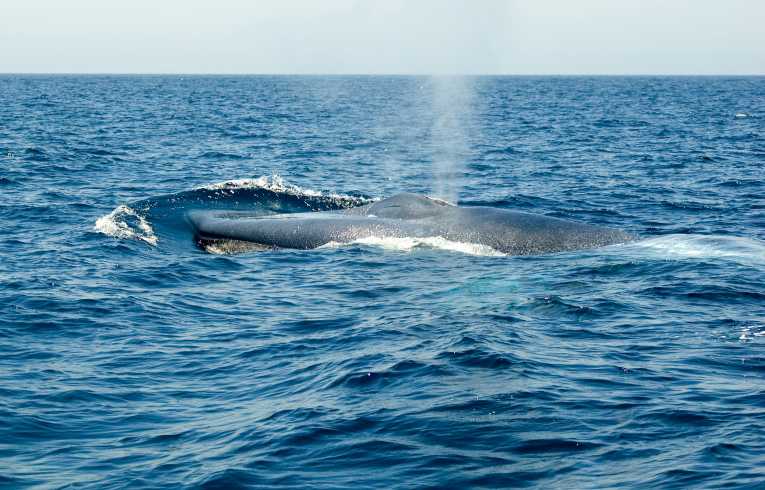An alliance of conservation groups has filed a petition with the US Secretary of Commerce, and the NOAA, insisting that they introduce a speed limit for ships in California's crowded marine sanctuaries. The need for such a measure has been highlighted by a drastic rise in the number of 'ship strikes' - where whales are literally plowed into by large sea vessels, often resulting in death or serious injury.
As well as the Center for Biological Diversity, conservation groups Friends of the Earth, Pacific Environment and the Environmental Defense Center have joined hands to ask for a 10-knots-per-hour cap, for those larger ships plying named Californian wildlife reserves. The reserves in question - the national marine sanctuaries of the Channel Islands, Cordell Bank, Monterey Bay and Gulf of the Farallones - are home to some of the most spectacular of marine wildlife in US coastal waters.
Within their 9,000 plus square miles of sea are to be found humpback and gray whales, as well as the majestic blue whale. Their numbers seem to be on the rise in these areas - but so too is the number of merchant vessels, which pack along the shipping lanes radiating to and from the Bay area ports. That has led to a sad rise in collisions between the behemoths of the ocean and commercial shipping.
In 2007, five blue whales were tragically mowed down in one month - and over the last decade more than 50 endangered large whales have died. Last year saw at least six fatalities within the marine sanctuaries due to ship strikes. The slowing the speed of ships in these areas could make a big difference, allowing more time for whales to move out of the path of oncoming vessels, says the petition.
'Reducing ship speed is a simple, reasonable way to protect whales and other aquatic life, as well as public health, from risks posed by large vessels that travel through California's waters. As our petition details, ship speed limits aren't just common sense, they're also necessary to protect our valuable ocean resources', said Marcie Keever, from Friends of the Earth. And the benefits extend beyond reducing this tragic cull - slower ships could bring many other environmental bonuses.
These include reduced air pollution, lowered carbon emissions, and much less noise pollution - as well as lower costs for shipping operators. The petitioning wildlife groups hope that by formally filing their request the day before World Oceans Day - a UN-sponsored event happening on June 8th to mark the dangers man poses to our oceans - the profile of their case will be raised.
Linda Krop, chief counsel of the Environmental Defense Center said that, 'filing this petition close to World Oceans Day reminds us of the need to ensure proper protection for whales, such as endangered blue whales, that rely on our national marine sanctuaries for feeding and migration.'
Top Image: Blue Whale. Credit: © Sebastien Burel










